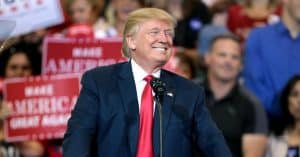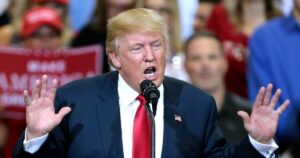Trump's proposal raises concerns over USPS future
President Donald Trump is contemplating significant changes to the governance of the United States Postal Service (USPS), with plans to move it under the executive branch, potentially dissolving its current governing board. This move has raised alarms about possible impacts on the independence and operational quality of the postal service, especially in rural regions.
Trump's proposal, which involves issuing an executive order, has prompted rapid responses from various stakeholders, including the USPS board and the American Postal Workers Union (APWU), highlighting potential legal and operational challenges.
In a move that could reshape how the USPS operates, Trump plans to relocate its control to the Commerce Department. According to reports, this plan would involve firing the current USPS governing board through an executive order. The USPS board, in response, convened an emergency meeting on Thursday to strategize against the possible executive order, indicating the immediacy of the perceived threat to their governance.
APWU And Board's Concerns
The American Postal Workers Union (APWU), a significant voice in the postal sector, has expressed deep concerns about these developments. Mark Dimondstein, the APWU President, has been vocal in his criticism. He views this proposal as “an outrageous, unlawful attack” on postal independence, emphasizing that the USPS is a national service enshrined in the Constitution and crafted by Congress to provide equal service to every American household and business.
Dimondstein's apprehensions are not without basis. Moving the USPS under the direct control of the executive branch could alter its foundational principle of offering universal service at uniform rates. The fear is that such changes may pave the way for privatization, a concept Trump has floated previously as part of financial reforms during his administration.
Potential Legal Battles
A significant point of contention in Trump's plan is the legal framework surrounding the USPS. The authority to establish and maintain postal services lies with Congress. This constitutional provision suggests that attempts to move the USPS under the executive branch could face strict legal scrutiny and potential challenges.
While legal experts debate the plan's viability, USPS operations continue to face uncertainty in leadership and direction. Postmaster General Louis DeJoy, a figure who has attracted both praise and critique over his tenure, has announced his resignation. DeJoy's exit after five years adds another layer of complexity to the USPS's future during this potentially tumultuous transition.
Executive Order And Its Implications
Should President Trump proceed with the executive order, it would represent a substantial shift in USPS operations and governance. The American public, particularly those in rural areas reliant on consistent postal services, could experience varied impacts if service operations undergo changes.
Dimondstein has emphasized that any efforts to remove USPS’s independence or alter its mission do not benefit Americans. Smaller communities might feel the brunt of these changes, with increases in postal rates and a potential reduction in services being likely outcomes if privatization or other reforms are pursued.
Trump himself has remarked on the idea of privatizing the USPS, asserting its appeal to several stakeholders. However, the implications of such a move bear significant weight, both legally and operationally, as the service remains a critical component of American infrastructure.
Looking Ahead
The developments around the USPS come at a critical time. As discussions continue, the future of the postal service hangs in the balance, and stakeholders remain attentive to any executive actions that may unfold. For now, the USPS board and the APWU are preparing strategies and potential legal defenses to protect the USPS's existing structure and services.
The ongoing situation involving the USPS reflects broader debates on governmental operations, the limits of executive power, and the enduring relevance of public services in modern America. The outcome of these debates and potential legal confrontations will likely set precedents for the future of the postal service and similar entities.
As the situation evolves, stakeholders, legal experts, and the public will be keenly observing the administration's next steps and their implications for one of the nation's oldest and most essential services. Trump’s proposal, undoubtedly significant, will require careful navigation through legal, operational, and public opinion landscapes.




